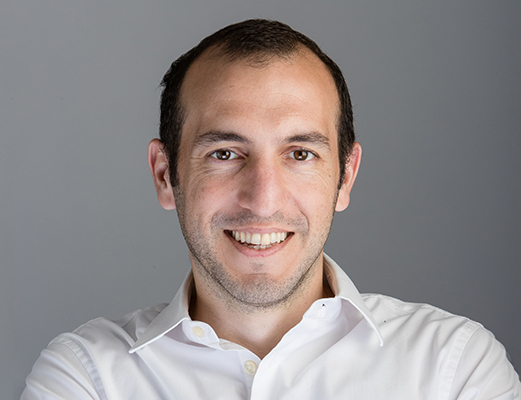Heart healthy? He’s got an app for that
“I’ve always been interested in genetics, in human origins and evolution,” says Associate Professor Ali Torkamani, PhD, who directs Genome Informatics at the Translational Institute at Scripps Research. “It’s fascinating to me that you can look at genetic information and predict future health or disease.”
Among the many personalized medicine projects that he and his team have implemented at the institute is the MyGeneRank study. Participants in this study enter their own genetic information, obtained through genetic testing services like 23andMe, into the MyGeneRank mobile app, which then computes their genetic risk for developing coronary heart disease. According to the National Institutes of Health, coronary heart disease is the leading cause of death in both men and women in the United States.
The MyGeneRank study includes nearly a thousand participants so far, but Torkamani hopes to enroll tens of thousands. “Our goal is to provide people with tools and information to empower them to make healthcare decisions based on genetic risk,” he says. “We conduct follow-up surveys and, with user permission, automatically track health data via the MyGeneRank mobile app. We want to learn if participants identified as having a genetic risk for heart disease have made any dietary or lifestyle changes or if they’ve consulted a physician about taking medications such as statins. Ultimately, we want to deliver the right kind of screening and interactive tools to help people manage their health.”
He and his team are ambitious. As genetic testing becomes more affordable and as scientists become more knowledgeable about linking genetic data with disease risk, Torkamani hopes to expand patient tools beyond coronary heart disease.
“Overall, human health is a complex interplay of genetic and other risk factors related to a wide array of disorders. With more staff and resources, we could begin developing models that more accurately and comprehensively predict overall health risks and, perhaps, be able to recommend early interventions.”
There’s much to do—and many prospective patients to help—and that’s what keeps Torkamani busy developing ever better computational programs to wrest predictive information from genetic data. “This is my passion,” he says. “Genome sequencing is complex and we still have a lot to learn, but it’s proving to be a valuable tool, combined with clinical assessment, for promoting human health.”


